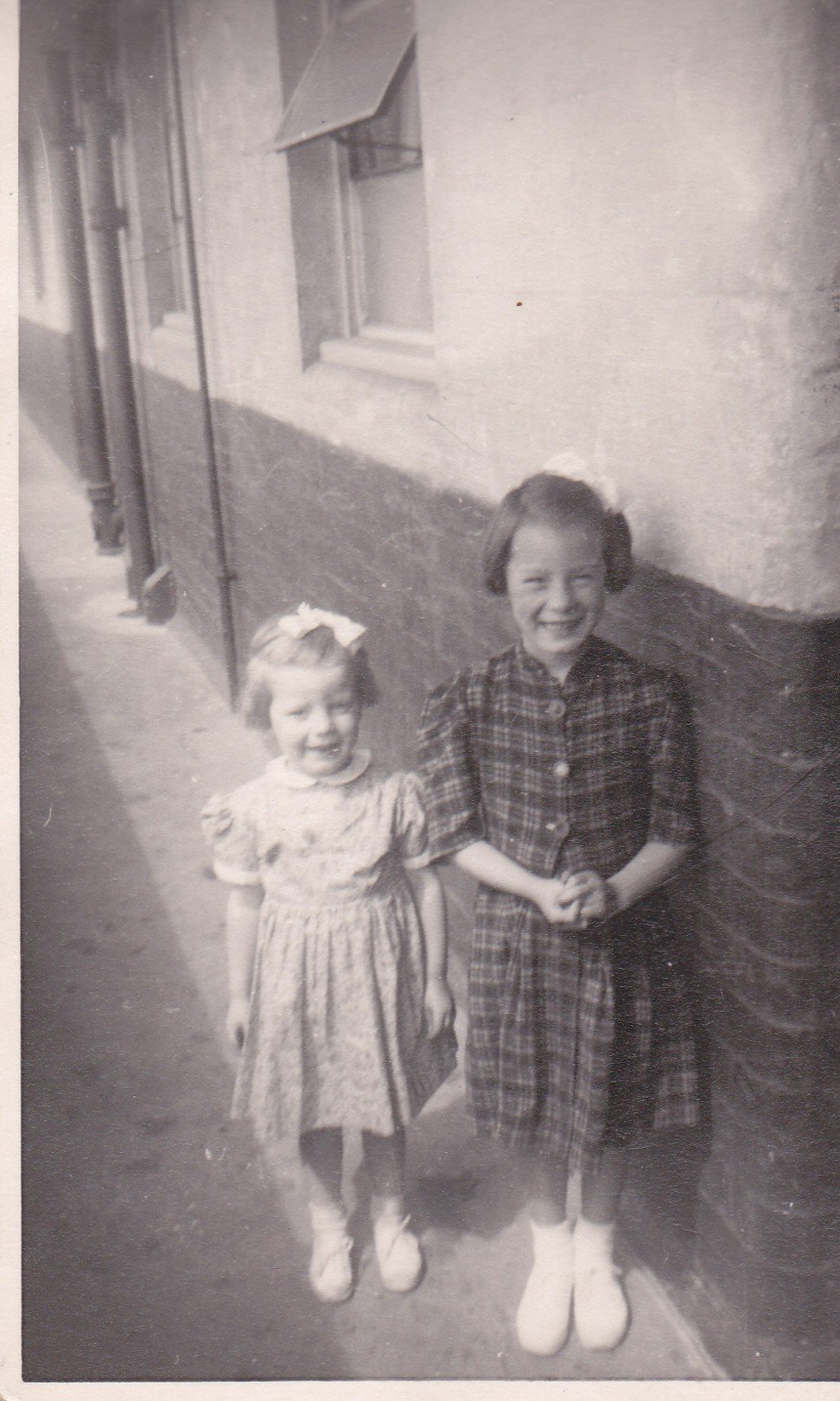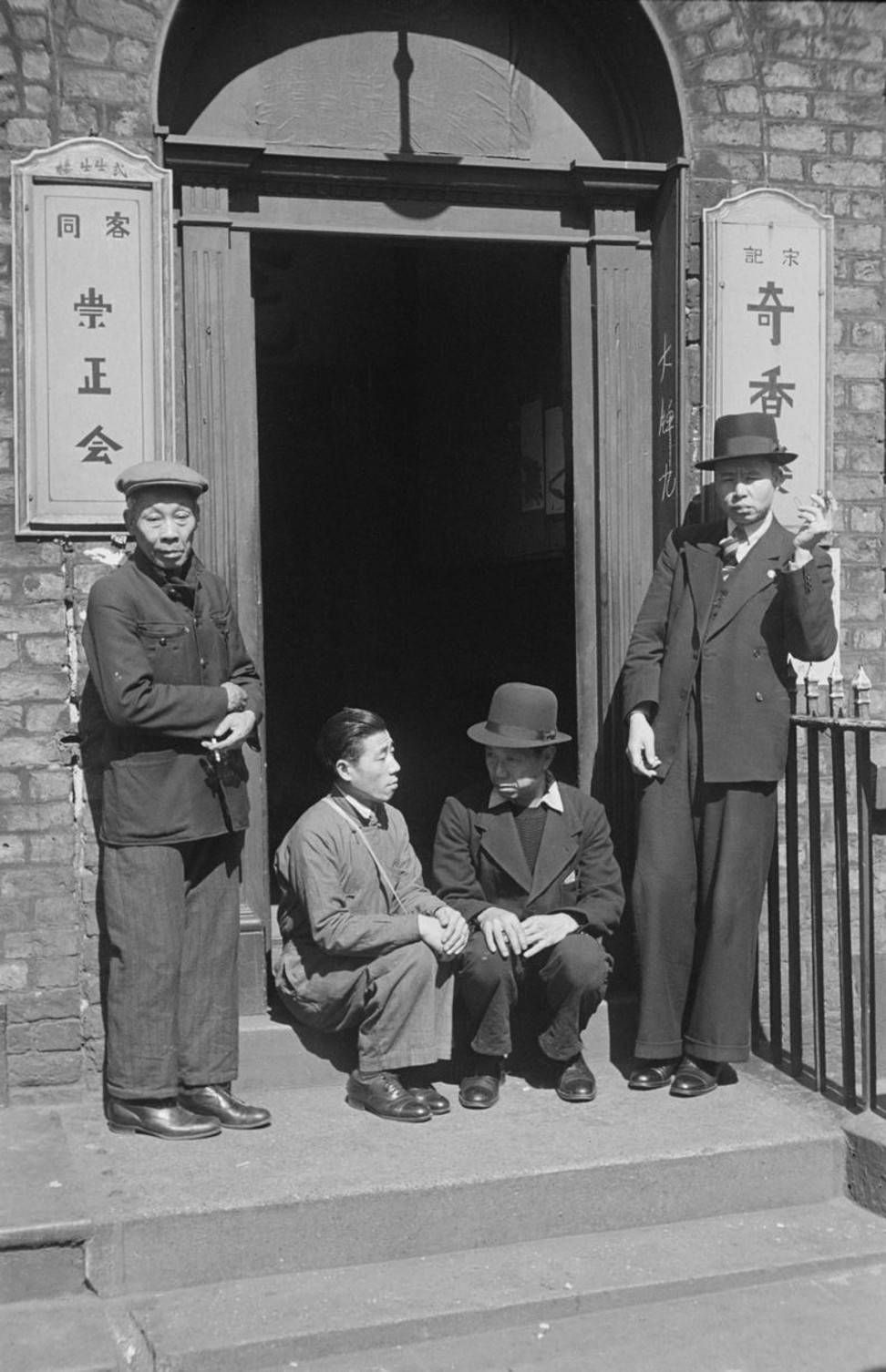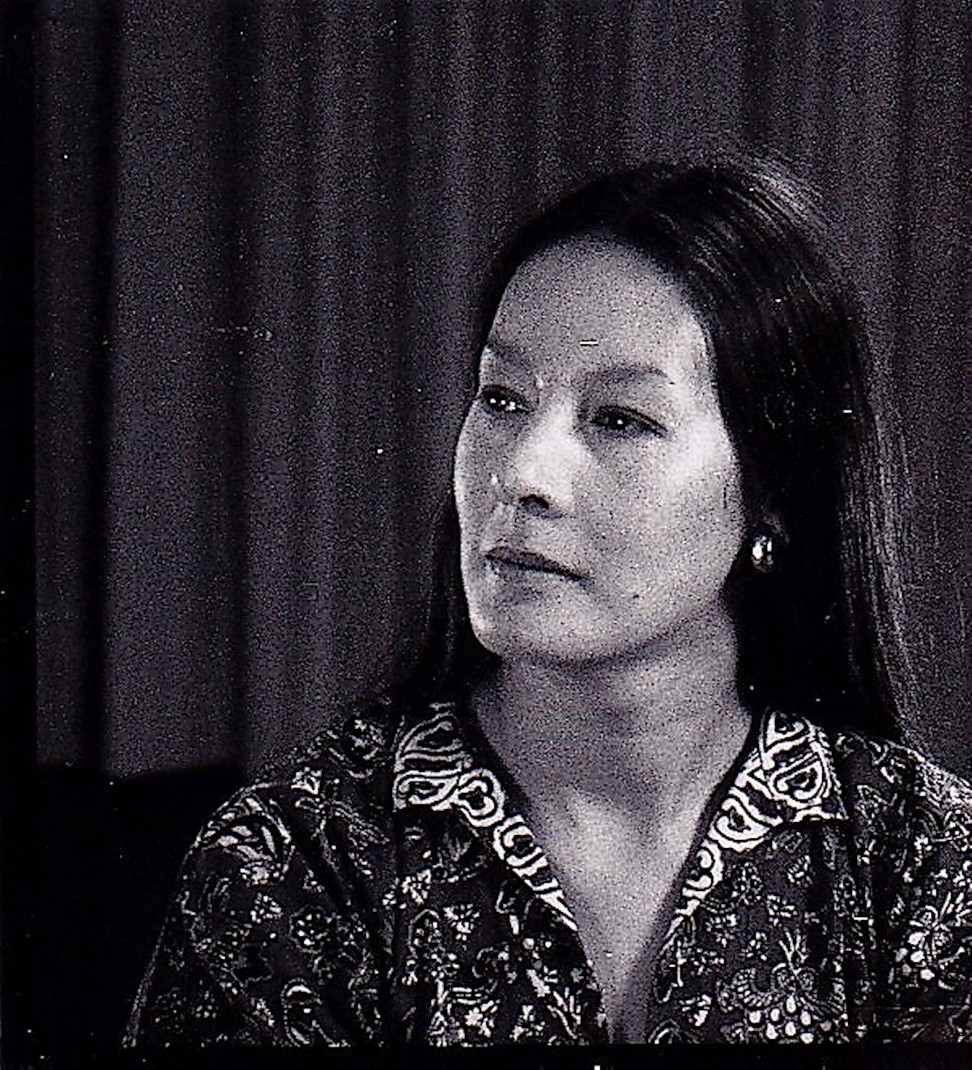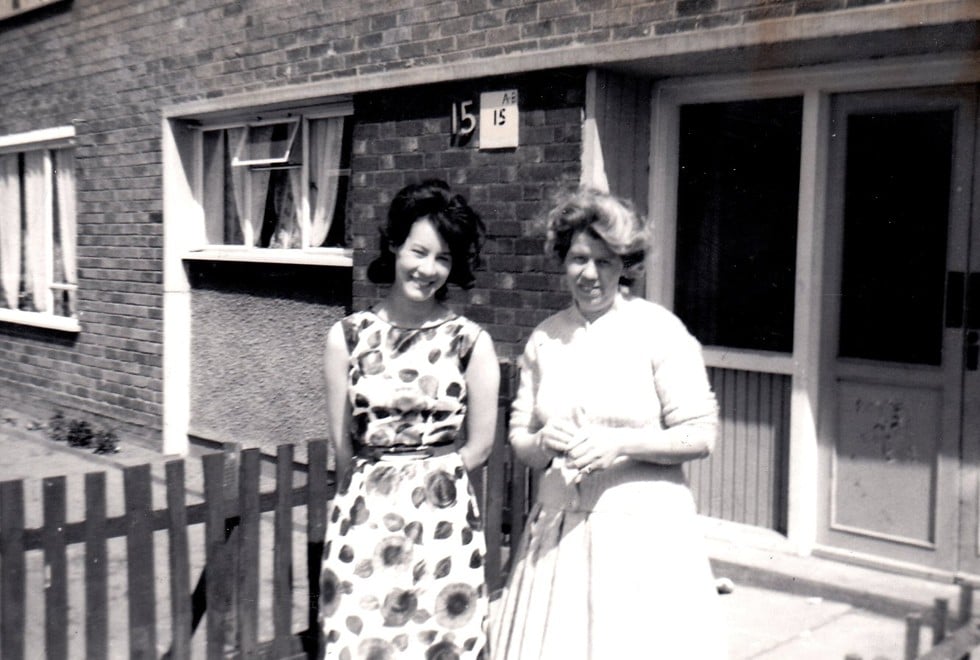
Why did 300 Chinese fathers vanish from Liverpool in 1946 after wartime service in British merchant navy?
Kept secret by the British government, the disappearance of sailors who’d braved German U-boats through the second world war left many Eurasian children to grow up not knowing what happened to their dads
It was 1946 when the “Shanghai father” Yvonne Foley believes she never met disappeared. He was not alone. As many as 300 Chinese fathers who had served in the British merchant navy out of Liverpool during the war vanished that year, leaving behind them families racked by fear and anxiety.
A protest led by a Mrs Lee in August 1946, reported in both the Liverpool Echo and the News Chronicle newspapers, proved fruitless. The reasons behind the disappearance of the men were kept a closely guarded secret by the British authorities – and it would be decades before the truth began to emerge.
“There are lots of dark shadows in this story,” Foley says.
During the 1940s, about 20,000 experienced mariners were recruited in Shanghai, Singapore and Hong Kong to supplement the British merchant fleet and undertake hazardous convoy duties in the waters of the North Atlantic, infested with German submarines, and beyond. Liverpool was the de facto headquarters of this Chinese merchant navy. Many of the men, like Foley’s father, a marine engineer, met and fell in love with local women and settled in the city.
Foley was told about her so-called Shanghai father. But her mother, Grace Isherwood, remarried and never explained why he had suddenly deserted his family.
“I just knew he came from Shanghai, he had lived in the French quarter and that he had chosen my name,” Foley says, while pouring green tea in the conservatory of her home in the English city of Chester. The room is adorned with Chinese ceramics and antiques, most acquired during the two periods in which she and her husband, Charles, lived in Hong Kong, during the 1980s and ’90s.
She possesses a photograph of herself as a baby with an inscription on the reverse. It was addressed to her father but was never given to him. She has little doubt daughter and father never saw each other, though she cannot be sure, and she has never seen a photograph of him.
Her mother found it painful to revisit those times. A 20-year-old Catholic woman from a respectable family, unmarried and abandoned with a baby, must have represented quite a scandal in prurient England – particularly when the father was known to be a Chinese sailor.
“I don’t even know my Shanghai father’s real name. My mother called him Nan and told me his family name was Young, but it could have been Yeung or Yang, or anything really,” Foley says.

For years, many other families assumed they had been abandoned, too. Children grew up nursing feelings of rejection and confusion over their Eurasian identity. The wives and mothers often felt shame and guilt and, in the absence of a breadwinner, many were forced to give up their children for adoption.
Foley remembers well the moment the truth began to emerge.
“I was lying in bed at home with flu and listening to the local radio station,” says Foley.
Chinese sailors were not only cheaper, they were also obedient, hard-working and didn’t drink and make trouble
It was 2002, and the programme, broadcast by BBC North West, was called Shanghai’d. It centred on a retired merchant seaman named Keith Cocklin and his efforts to investigate the disappearance of his father, Soong Kwai Sing, from Liverpool in 1946.
Cocklin claimed he had seen evidence in government archives of a campaign to forcibly repatriate seamen like his father, who had served with distinction during the war.
That radio programme inspired Foley and her husband to embark on their own, 15-year quest to discover the truth about her father and the other lost Chinese seamen, a trail that led from the Public Records Office in London to the national archives in Shanghai and encompassed a partnership with Dalian Maritime University, in Liaoning province, as they excavated the secret history.
“I started the research not to find my father, but to find out what happened to him,” she says, “and instead I found him within myself.”
British merchant seamen were needed for naval reserve duties and the skilled mariners of Shanghai and Hong Kong offered an ideal and cost-effective solution to an acute wartime labour shortage.
“Chinese sailors were not only cheaper, they were also obedient, hard-working and didn’t drink and make trouble,” Han Qing, a professor of maritime history and culture with Dalian Maritime University, told the China Daily last year. “Even before the war, Chinese sailors had earned a good reputation in Europe.”
Much has been written about the heroic efforts of the British merchant navy during the second world war, keeping vital supply lines open along perilous convoy routes. What is less well known is that about 15 per cent of those mariners were Chinese, many of whom were, in the words of one British sea captain, “truly excellent, working to the point of exhaustion”.
Rather than receiving due recognition and gratitude for their contribution to the war effort, Charles Foley discovered, the Chinese mariners of Liverpool were treated with discrimination and contempt.
Early in the conflict, while they worked under the same conditions as their British shipmates and were equally vulnerable to German U-boat attack, the Chinese received less than half the wages, and were not paid the war-risk bonus of £10 a month enjoyed by the British mariners.

The situation created resentment within the two Chinese unions in Liverpool: The Chinese Seamen’s Union, which had strong links to the Kuomintang government in China and was dominated by Cantonese-speaking sailors; and The Liverpool Chinese Seamen’s Union, which was closely linked to the Chinese Communist Party, and was favoured by the more militant and often better educated Shanghai men.
“It seems the divisions of the Chinese civil war between Nationalists and Communists were predominant in the Chinese seaman’s community in Liverpool, too,” Charles Foley says.
In 1942, the Chinese mariners staged industrial action and, in April of that year, they won better rates of pay from Holts and Shell, and the war-risk bonus.
They would pay a high price for that victory. Once the war was over, the Chinese quickly became personae non gratae, Charles Foley discovered, and Holt’s slashed their wages. The war-risk bonus for Chinese sailors was withdrawn while their British counterparts continued to benefit. It was a highly provocative move, and Holt’s agent in Hong Kong, Butterfield and Swire, wrote to the shipping company, warning that inequitable pay rates would cause trouble.
Many of the Chinese mariners in Liverpool and other ports drifted home of their own accord, at the end of their contracts, on merchant ships bound for ports in east Asia. But government papers unearthed by her husband led Foley to question whether she might have misjudged her Shanghai father. Fragments of information, passed down by her mother over many years before her death, in 1981, began to make more sense.
My mum said she received two letters from him after he left, via Chinese secret societies in Liverpool – the first came from Hong Kong and the second from Taiwan
At the Public Records Office, in London, there was documentary evidence of a meeting, on October 19, 1945, at the Home Office, at which the government decided to remove the Chinese seamen, referring to them as “an undesirable element in Liverpool”.
This conspiracy also involved the city authority, which desperately needed extra housing in bomb-damaged Liverpool for local men returning from active service overseas. Charles Foley found evidence in the Alfred Holt company archive that the organisation was eager to jettison the militant Shanghai seamen, with their Communist sympathies, and replace them with what they regarded as the more pliant Cantonese, recruited in Hong Kong.
Grace Isherwood and her Shanghai seaman met at a college – it’s not known whether Nan was a student at the time, but he could have been studying engineering – and dated for about two years, despite the objections of the Isherwood family. Yvonne’s uncle once told her he remembered accompanying her grandfather to demand that Grace come home. Younger than 21, Grace needed parental consent to marry and Foley assumes her mother became pregnant to force her family to permit her to wed the Chinese man she loved. If that is so, the ploy failed.

The Foleys found records showing that Grace and Nan moved to Hull, in eastern England, and bought a modest house there. Holt’s ran another shipping line from the east coast port, called Glen, and it is almost certain Nan would have worked on its ships.
Many of the women who set up home with Chinese mariners and started families did not formally marry, either because, like Grace, they were under 21 years old and couldn’t get parental consent or because, in the 1940s, when women married foreign nationals they surrendered their British citizenship and assumed the nationality of their husbands.
Married or not, they earned a reputation in ultra-conservative post-war England as being “loose women” and, in another archive, Charles Foley found that government officials dismissed those married to or cohabiting with a Chinese partner as “the prostitute class”.
“I was very angry when I read that,” Foley says. “They obviously hadn’t met my mother.”
Merchant mariners of many nationalities signed on to sail aboard ships for one or more voyages and, after being paid off, were free to sign again or take unpaid leave until doing so.
As professional seamen, the Chinese mariners, whatever their employment status, would have assumed they could stay on in Liverpool, their discharge book or seaman’s card being as good as any passport or visa. But the Home Office files seen by Charles Foley show that 800 men had been repatriated by March 23, 1946. Of that number, 231 had been “rounded up”. By July 11, the figure for repatriations had risen to 1,362.
According to him, forced repatriation was undertaken with the consent of the local seaman’s union – which did not want competition from cheap foreign labour for its members – and the Chinese embassy in London.
Officials argued that no Chinese seaman married to a British-born woman had been forcibly repatriated – the legal situation was complicated and the government did not want to appear to be splitting up families – but Charles Foley has seen evidence that this was not true. At least one married man, with three children, was “rounded up” and deported.
And for the unmarried fathers who were sent home, some did not have time to say goodbye.
It’s feasible my dad was alive and living in Hong Kong when we were there and that’s the sad thing
“Dad always wanted to change the world and he led meetings at the little house in Hull,” Yvonne says, remembering stories told to her by her mother. “I am assuming he was a unionist or a socialist.”
She remembers another story that might now be seen in a new light.
“The house in Hull was burgled while my dad was at sea and my mum said that while there was jewellery and cash in the house, they only took his documents and his chop,” she says.
Charles Foley says: “I think he was one of the union guys and would have been a natural target for the authorities.”
Whether he was rounded up and deported or just worked his passage on a ship bound for the East and was refused permission to re-enter Britain, it’s unlikely Foley’s father made it home to Shanghai. China was by then gripped by civil war. Most of the forcibly repatriated mariners jumped ship and sought work in Singapore or Hong Kong, only to find themselves blacklisted by all Western shipping companies, Charles Foley discovered.
After the end of the civil war, in 1949, Shanghai’s shipping firms relocated to Hong Kong. That is probably where Foley’s father ended up.
“My mum said she received two letters from him after he left, via Chinese secret societies in Liverpool – the first came from Hong Kong and the second from Taiwan,” she says.
After her mother’s death, Foley could not find the letters. Perhaps they explained the mystery. Perhaps they begged Grace to join Foley’s father in Shanghai or Hong Kong with their baby daughter and start a new life.
Foley and her husband knew none of these details while they were living and working in Hong Kong. Charles Foley worked as a lecturer at Polytechnic University (1981-82) and for the Trade Development Council (1991-94), when they lived in the Beverly Hill estate, in Happy Valley.
“We loved Hong Kong and it first inspired my interest in my own Chinese heritage,” explains Foley, who says she always felt different from the rest of her family.
The couple visited Shanghai on a guided tour in 1982 and she admits to having felt “an intense curiosity” about the city.

“It’s feasible my dad was alive and living in Hong Kong when we were there and that’s the sad thing,” Foley says.
Perhaps she passed him in a busy MTR station or on the streets of North Point, the traditional home of the local Shanghainese. Maybe, even now, someone in Hong Kong remembers a determined union man and marine engineer who served with pride in the British merchant navy during the second world war, fell in love with a girl in Liverpool and named his daughter Yvonne.
Over the years, Foley has become friends with others who lost their Chinese father in 1946. Some of them, such as Brian Flower, remember their father returning to the city in 1950. Josh Law can recall being given a £5 note by his father.
The accounts awaken in Foley a recurring dream she has had since childhood: she is walking with her mother, who is carrying her younger sister, Mary, in her arms, and her stepfather – they are going to meet someone. She sees a man wearing a long overcoat and a fedora hat standing under a lamp post. Her stepfather puts her hand in her mother’s and takes Mary. He says to her mother, “Just get it sorted.” Her mother then walks up to the man under the lamp post and says, “It’s too late, it’s just too late.”
Did her biological father return from Hong Kong to reclaim his family, only to find Grace had married another man and had a second child?

No longer can the contribution of the Chinese mariners to the British war effort, or the way they were treated when their services were no longer required, be denied – though the search for the whole story continues.
“We had been the skeletons in the closet that were never allowed to rattle,” Foley says. ■



